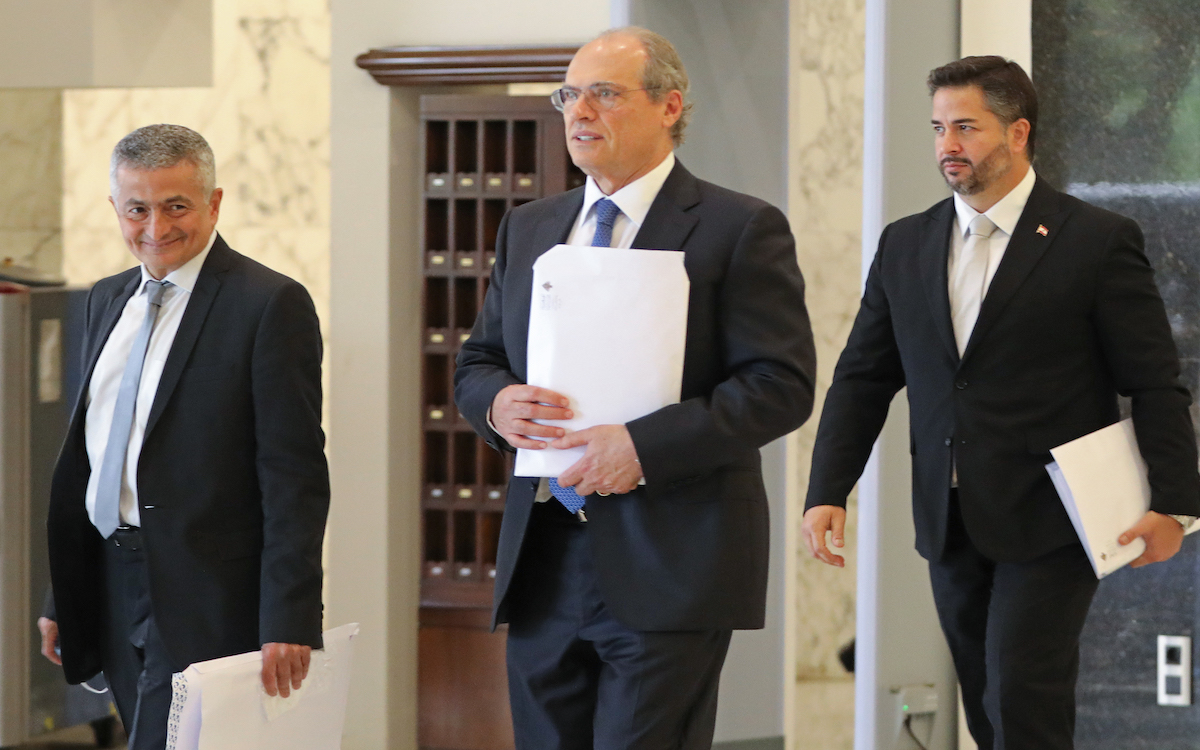
A drastic tax hike is planned in Lebanon’s 2022 budget to boost the crisis-riddled state’s revenue. This is part of a yearly budget published in mid-November that has been put into effect.
First passed in September, the budget includes LL37.71 trillion in current expenses and LL3.17 trillion in capital expenditures for a total of LL40.87 trillion. The budget also states a 15,000 lira rate to the dollar, while the market rate passes 40,000 lira to one dollar.
Why this matters: On Monday, Finance Minister Youssef Khalil confirmed to The National that the new tax rate will be based on Sayrafa, the Central Bank’s official exchange rate platform, with the Lebanese pound at 30,000 dollars per unit.
During the budget process, legislators increased tax brackets to help taxpayers cope with the financial collapse. However, this adjustment might be too challenging for cash-strapped Lebanon, where 53.1 percent of all its residents were found by Multidimensional Poverty Index (MPI) as multidimensionally poor and deprived in over 25 percent of the indicators.
Moreover, the budget has been criticized by some who believe it needs to be accompanied by a rescue plan to alleviate Lebanon’s financial burdens and implement reforms in the banking sector.
The budget also falls short of IMF conditions, which are required for the deal to pass. On April 7, the IMF and the Lebanese government announced a preliminary staff-level agreement that entails a $3 billion assistance package to Lebanon for around four years. The agreement included increased revenues to fund the crippled public sector, and to calculate customs taxes at a unified exchange rate.
However, the exchange rate on the black market is more than double the future exchange rate of 15,000 lira to one dollar.
Yes but, according to the new budget, salaries for all employees of the public sector have tripled, including those in the army and security forces, whose salaries decreased to $50 as the Lebanese pound has declined by more than 95 percent over the past years.
However, a group of 11 MPs appealed the budget before the Constitutional Council just before the deadline of 10 working days. While this does not impede the implementation of the budget, it does allow MPs to contest the tax increase and fiscal inequity that was previously criticized by the World Bank.
The bottom line: The new annual budget falls short of the IMF demand for a unified exchange rate and might impede the unlocking of the $3 billion aid package. It also imposes exorbitant taxes that might lead to further tax evasion and fraud, in addition to the 10.89 trillion Lebanese pounds deficit it has already forecasted.
Dana Hourany is a multimedia journalist with @NOW_leb. She is on Instagram @danahourany and Twitter @danahourany.








